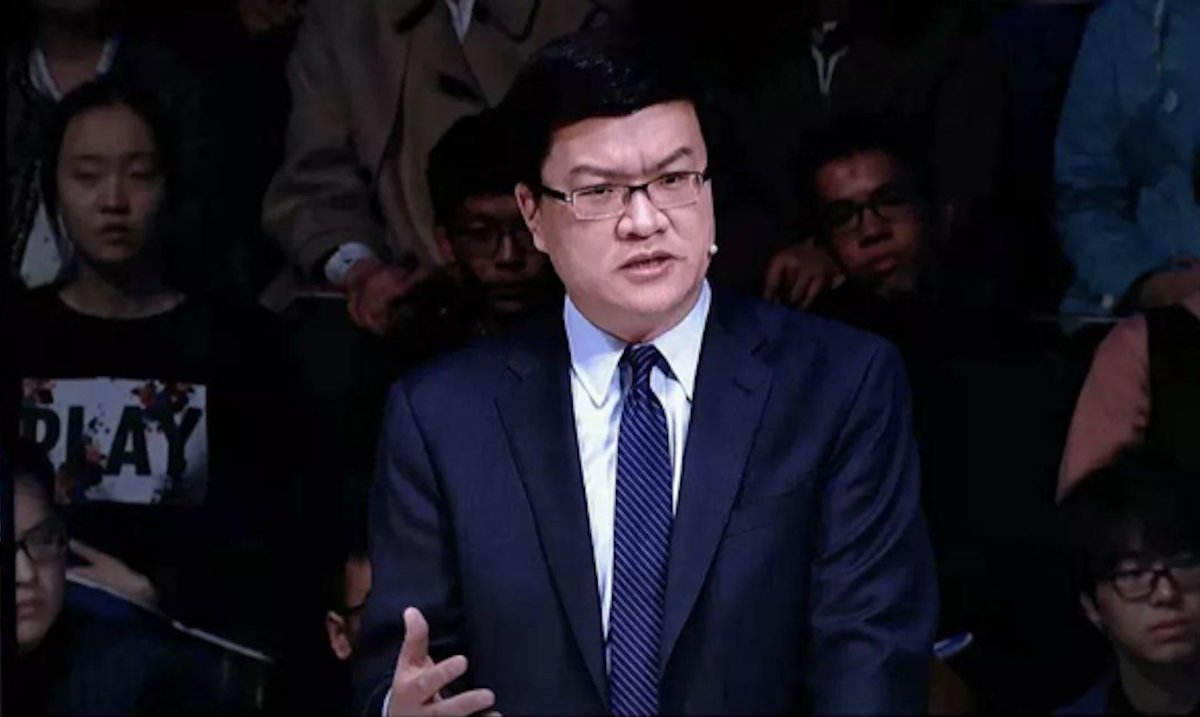
🪧 Remember #XiJinping encouraging #CCP members/diplomats to show a “fighting spirit" and his repeated emphasis on "being good at struggling"?
What this implies is still being debated in #China.
Below is a 'moderate' take by one of China’s most respected US specialists:
🧵🧵🧵
What this implies is still being debated in #China.
Below is a 'moderate' take by one of China’s most respected US specialists:
🧵🧵🧵
🔹 Da Wei (达巍) is a professor of international relations at Tsinghua University and the director of its prestigious Centre for International Security and Strategy (CISS). 

▫️ “The 20th Party Congress demanded that the whole of the Party ‘carry forward its fighting/struggling spirit’ ... It is important to stress that the #communist emphasis on struggle is a #Marxist philosophical concept & must be distinguished from the struggle of everyday life.”
▫️ “#Mao Zedong pointed out that ‘the struggle of opposites is ceaseless, it goes on both when the opposites are coexisting and when they are transforming themselves into each other, and becomes especially conspicuous when they are transforming themselves into one another.'"
▫️ “In other words, contradictions are always present [无时不在] and present everywhere [无所不在]. Struggling is the process by which old contradictions are resolved and new ones arise.”
▫️ “Mao Zedong also pointed out that ‘... we must pay attention to the distinction between the different forms of struggle’, and that ‘antagonism [or ‘confrontation’] is one form, but not the only form, of the struggle of opposites’.”
▫️ “In other words, ‘struggling’ could include both fierce confrontation and other forms such as circumvention [迂回], compromise and cooperation. This is the essence of the Party's repeated emphasis on ‘being good at struggling [善于斗争]’.”
▫️ “In the face of #Washington's fundamental reorientation its strategy towards #China, getting bogged down at the USA-China bilateral level in ‘back-and-forth [你来我往], tooth-for-a-tooth [以牙还牙]’ [exchanges], would not be in keeping with what is required of ‘great powers’.”
📎 In his article, Da Wei continues by arguing that, except for matters that touch upon China’s core interests, Beijing should avoid responding to American provocations in a tit for tat way and should focus its efforts on building bridges with the #USA and the rest of the world.
📣 For more on this and other topics as viewed by Chinese scholars and think-tank analysts:
sinification.substack.com/p/how-china-sh…
sinification.substack.com/p/how-china-sh…
• • •
Missing some Tweet in this thread? You can try to
force a refresh








